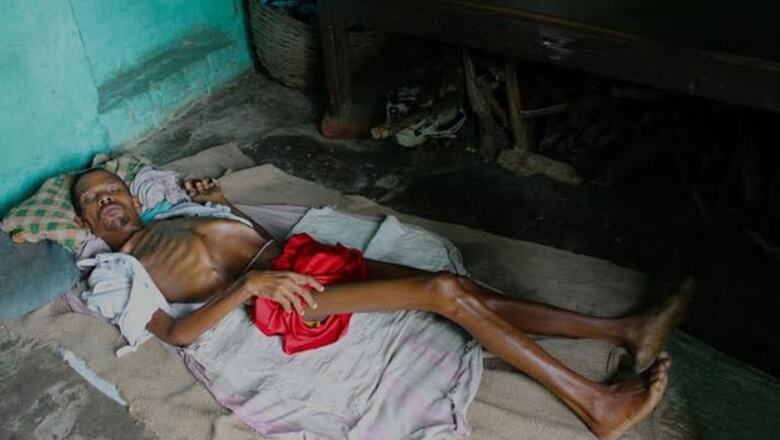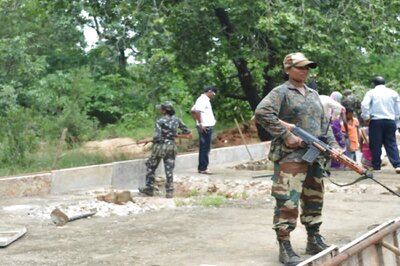
views
Kolkata: In Dante's eighth circle of Hell, Count Ugolini, the infamous political betrayer recounts the grisly details of eating his own children after being driven by hunger. Apart from the gory account of cannibalism the line that perhaps stays with the reader the most is when a blind Ugolini getting ready for his own death and racked with grief and remorse says " ...fasting proved stronger than grief."
So what is hunger? The Oxford Dictionary defines it as "A feeling of discomfort or weakness caused by lack of food, coupled with the desire to eat."
In 1974, the United Nations General Assembly made the Universal Declaration of Eradication of Hunger and Poverty saying that hunger and food imbalance goes against the basic principles of right to life as conceived in the Universal Declaration of Human Rights.
But why do we need such a long preamble to know what hunger is?
In Bengal's five closed tea gardens, hunger has led to the deaths of 100 workers. This figure cannot be verified because the government has denied all reports of starvation deaths. In an interview to me, Gautam Deb, the North Bengal Development Minister said, "This is all bogus things. It is the propaganda of the press and nothing else."
 Photo courtesy: Right to Food & Work Campaign
Photo courtesy: Right to Food & Work Campaign
A week ago 23-year-old Mukesh Goala (picture above) died in the Bundapani tea estate, which has been closed since last year forcing 1150 people out of jobs into a life of desperate poverty and starvation.
45-year-old Sani Aro sits for hours under the blazing sun picking stones from the nearby river Dumki where she makes Rs 30 a day. Barely enough to feed her family and look after her husband. Both Sani and her husband Ratia were garden workers till one day they found themselves without a job and the measly income of Rs 95 a day which ensured food on the table. Today she sees her husband slowly withering in front of her eyes. All her money is spent on his medicines for an illness that she cannot comprehend.

Lying half naked on the floor, Ratia's thin mass of bones (picture above) is a stark reminder of what the closure of the gardens has done to its workers. The Plantation Labor Act (PDF) stipulates housing, electricity, ration among other things to be provided by the owners which has been historically cited as one of the reasons why a higher wage is untenable for the industry to bear in conjunction with the social costs of providing these facilities.
But here's the problem.
Cracked houses, cratered streets, hooch dens at every corner- the coolie lines of the tea gardens are nothing short of a human hell of filth and stink.
When a garden shuts down because of errant owners or litigations the workers are trapped with no money or food leading to unsafe migration and trafficking of women and children.
"Yes the pay is low but the only way to save these people is the reopening of the gardens," Raju Thapa, Convenor of a labor union at Bundapani says.

As a reporter we encounter many tragedies, natural or man-made. I have been reporting on the plight of the tea gardens since 2011 and every time the narrative doesn't seem to change, the only thing that separates each story is the toll of the human suffering. In 2013, at Dheklapara another closed garden, 15 people had written to the Chief Minister seeking permission to die. After a flurry of media reports, the district administration scrambled to extend the the government schemes to the workers but the condition though slightly improved is still precarious exacerbated by poverty and malnourishment which no amount of government dole outs can change. With minimum wages across the country increasing with time many say that the Plantation Labor Act needs to improve with stringent punishment for rogue owners and parity in income so that the tea garden workers can have equal rights and equal protections. But who knows how long that will take till then let's remember hunger and what it means.


















Comments
0 comment